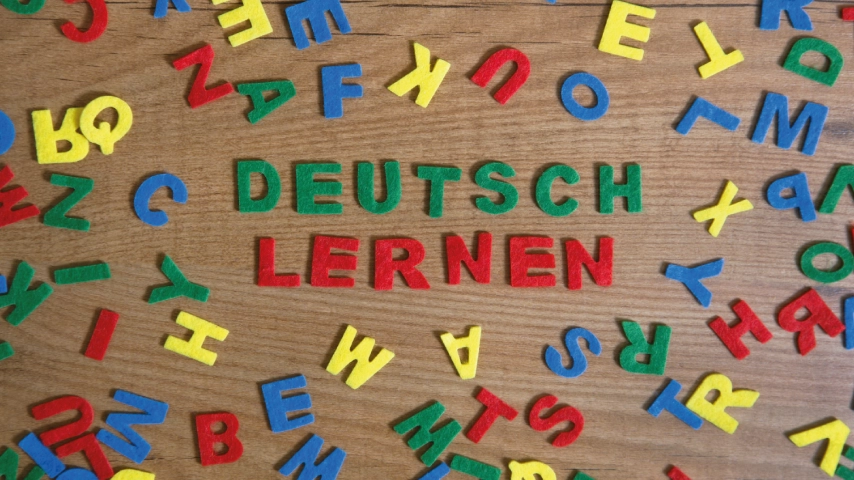Almanca ismin -E Hali (Dativ) Konu Anlatımı

ALMANCA İSMİN -E HALİ (DATİV)
Almanca dativ yani ismin e hali konusuna başlamadan önce eğer incelemediyseniz bir önceki dersimiz olan Almanca Akkusativ Konu Anlatımı isimli dersimizi mutlaka incelemenizi tavsiye ederiz. İsmin -e hali yani Dativ’den önce ismin i halini yani Akkusativ’i öğrenmeniz daha iyi ve kolay olacaktır. Şimdi konumuza dönelim.
İsmin -e hali de artikellerin değiştirilmesi suretiyle yapılır.
Artikeller şu şekilde değişiklik gösterirler:
der artikeli dem haline,
das artikeli dem haline,
die artikeli der haline,
ein artikeli einem haline,
eine artikeli einer haline,
kein artikeli keinem haline,
keine artikeli keiner haline getirilir.
İlginizi Çekebilir: Hiç kimsenin aklına gelmeyen en kolay ve en hızlı para kazanma yöntemlerini öğrenmek ister misiniz? Para kazanmak için orjinal yöntemler! Üstelik sermayeye gerek yok! Detaylar için TIKLAYIN
Burada şunu belirtmek isteriz; ismin halleriyle ilgili oldukça değişik durumlar olduğunu farketmişsinizdir. Ne kadar çok pratik ve alıştırma yaparsanız bu kurallara o kadar kolay ve çabuk aşina olabilirsiniz. Önümüzdeki bölümlerde bu konularla ilgili bolca örnekler ve alıştırmalar vereceğiz. Kendiniz de bu konuda alıştırmalar yapmaya çalışınız.
Bilmediğiniz durumlar için yardım isteyiniz. Unutmayın ki, ne kadar çok alıştırma yaparsanız, öğrenme süreniz de o kadar kısalır ve konular kalıcı hale gelir. Şimdi devam edelim:
der Schüler (öğrenci) —————— dem Schüler (öğrenciye)
das Kind (çocuk) ———————- dem Kind (çocuğa)
die Frau (kadın) ———————— der Frau (kadına)
ein Haus (bir ev) ———————– einem Haus (bir eve)
kein Haus (bir ev değil) ————— keinem Haus (bir eve değil)
eine Frau (bir kadın) —————— einer Frau (bir kadına)
keine Frau (bir kadın değil) ———- keiner Frau (bir kadına değil)
Yukarıda verilen kurallar burada örnek haline getirilmiştir. Lütfen dikkatle inceleyiniz.
İsimlerin çoğulunu anlatırken bazı isimlerin sonlarına -n veya -en takıları alarak çoğul olduklarını belirtmiştik. Bu isimler genellikle son harfleri -schaft, -heit, -keit, -in, -lei, -rei, -ung olan isimlerdi. Bu belirtilen isimlerden artikeli “der” olanlar, ismin -e haline çevrilirken “der” artikeli “dem” olur ve kelime çoğul haliyle kullanılır. Yani çoğulda sonlarına -n veya -en takılarını alan ve artikeli “der” olan tüm isimler, ismin -e halinde daima çoğul yazılışlarıyla kullanılırlar. Bu istisna sadece -e haline has bir özellik olmayıp, ismin tüm halleri için geçerlidir. Bir örnek vermek gerekirse, Student (öğrenci) kelimesinin artikeli “der”dir. Ve bu kelime sonuna -en takısı alarak çoğul olur. Yani yukarıdaki istisna bu kelime için geçerlidir. O halde bu kelimenin tekilini, çoğulunu ve -e halini ele alalım;
der Student (ismin tekili ve yalın hali) (öğrenci)
die Studenten (isimin çoğulu ve yalın hali) (öğrenciler)
dem Studenten (ismin tekili ve -e hali) (öğrenciye)
Yukarıdaki durumu iyi analiz ederseniz yukarıdaki istisnayı çok rahat kavrayabilirsiniz.
İlginizi Çekebilir: İnternetten para kazanmak mümkün mü? Reklam izle para kazan uygulamaları hakkında şok gerçekleri okumak için TIKLAYIN
Sadece bir cep telefonu ve internet bağlantısıyla oyun oynayarak ayda ne kadar para kazanabilirsiniz merak ediyor musunuz? Para kazandıran oyunları öğrenmek için TIKLAYIN
Evde para kazanma yolları hakkında ilginç ve gerçek yöntemleri öğrenmek ister misiniz? Evde çalışarak nasıl para kazanırsınız? Öğrenmek için TIKLAYIN
Almanca Çoğul İsimlerin -E Hali
Çoğul isimlerin -e halini aşağıda inceleyeceğiz.
Bilindiği gibi yalın halde bulunan çoğul isimlerin tümünün artikeli “die” oluyordu.
Bir önceki bölümde ismin -i halinde çoğulları ayrıca ele almamamızın nedeni ise, çoğul isimlerin -i halinde ayrıca bir değişiklik göstermemesi idi. Burada çoğul isimleri ayrıca ele almamızın nedeni ise, çoğul isimlerin ismin -e halinde bir değişiklik göstermeleridir. (görüldüğü gibi bu dilde herşeyin kendine has istisnaları var. Eğer bolca alıştırma yaparsanız, ileride, gözünüzü korkutan bu kurallar iki ile dördü çarpmak kadar kolay ve alışılmış gelecektir.)
Çoğul isimleri -e haline sokmak için çoğul ismin önündeki “die” artikeli “den” olarak değişir ve ismin sonuna bir “n” harfi eklenir. Eğer ismin çoğulunun son harfi “n” ise o zaman “n” harfinin getirilmesine gerek yoktur. (Yukarıdaki kuralı tekrar okuyunuz)
Örneğin;
die Väter (çoğul ve yalın hali) (babalar)
den Vätern (çoğul ve -e hali) (babalara)
Yukarıdaki örnekte görüldüğü gibi “die” artikelini “den” yaptık ve çoğulda ismin sonunda “n” harfi olmadığı için -e haline getirirken bir “n” harfi koyduk.
Örnek:
die Frauen (çoğul ve yalın hali) (kadınlar)
den Frauen (çoğul ve -e hali) (kadınlara)
Yukarıda da görüldüğü gibi “die” artikeli ismin -e halinde “den” haline dönüştü ve ismin çoğulu zaten “n” harfiyle bittiği için isme ayrıca bir “n” harfi eklenmedi.
Peki çoğul isimlerle sadece “die” artikeli mi kullanılır? Hayır. Çoğul isimlerle belirsiz artikellerin de kullanılabileceğini (olumsuz-belirsiz) önceki bölümlerde belirtmiştik. O zaman çeşitli belirsiz artikellerlerin -e haline getirilişleriyle de çeşitli örnekler verelim.
Bilindiği gibi çoğul isimlerle “ein” ve “eine” kullanılmıyordu. Çünkü bu kelimeler “bir” anlamı veriyordu. Bu anlam da ismin çoğuluyla çelişir. Siz hiç “bir kitaplar” diye bir şey duydunuz mu? Bu anlam saçmadır yani sadece “kitaplar” olarak kullanılmalıdır. O halde “ein” ve “eine” çoğulda kullanılmazlar.
Bir örnekle açıklayalım; ein Buch (bir kitap) kelimesi tekil haldedir yani sadece tek bir kitabı ifade eder.
Kitaplar kelimesi ise “ein Bücher” olarak kullanılamaz, “Bücher” olarak kullanılır.
O halde ismin -e halinde de “ein” ve “eine” artikellerini kullanmıyoruz.
Örnek:
ein Buch (yalın hali ve tekil) (bir kitap)
Bücher (yalın hali ve çoğul) (kitaplar)
Büchern (-e hali ve çoğul) (kitaplara)
Yukarıdaki örnekte Bücher kelimesinin önünde artikel olmadığı için sadece kelimenin sonuna bir “n” harfi eklenmiş ve kelime -e haline getirilmiştir.
Çoğullarda ismin önünde “keine” kullanılabiliyordu. Bir örnekte bununla ilgili yapalım;
keine Bank (hiçbir banka) (yalın hal-tekil)
keine Banken (hiçbir bankalar) (yalın hal-çoğul)
keinen Banken (hiçbir bankalara) (-e hali-çoğul)
Bölümün başında “keine”nin “keinen” olarak değiştiğini belirtmiştik.
Bu bölümde de ismin -e haline ilişkin çeşitli kullanımlar sunduk. Yabancı diller nankördür derler. Ne kadar ezberlerseniz ezberleyin tekrar ve alıştırma olmadan asla kalıcı olmazlar. Sizlere tavsiyemiz burada okuduklarınızla yetinmeyin. Kendi kendinize bir çok sözcüğü ismin çeşitli hallerine dönüştürmeyi deneyin.
Almanca derslerimiz hakkında her türlü soru ve görüşlerinizi almancax forumlarına ya da altta bulunan yorum kısmına yazabilirsiniz.Tüm sorularınız almancax eğitmenleri tarafından yanıtlanacaktır.
Başarılar…
ALMANCA İSMİN HALLERİ KONU ANLATIMI ÇERÇEVESİNDEKİ TÜM DERSLERİMİZİ BİR ARADA GÖRMEK İSTERSENİZ:
Almanca ismin i hali konu anlatımı
Almanca ismin e hali konu anlatımı
Almanca ismin in hali konu anlatımı
almancax ekibi başarılar diler..




















 Shqip
Shqip አማርኛ
አማርኛ العربية
العربية Հայերեն
Հայերեն Azərbaycan dili
Azərbaycan dili Euskara
Euskara Беларуская мова
Беларуская мова Bosanski
Bosanski Български
Български Català
Català 简体中文
简体中文 繁體中文
繁體中文 Corsu
Corsu Hrvatski
Hrvatski Čeština
Čeština Dansk
Dansk Nederlands
Nederlands English
English Esperanto
Esperanto Eesti
Eesti Suomi
Suomi Français
Français Galego
Galego ქართული
ქართული Deutsch
Deutsch Ελληνικά
Ελληνικά Ōlelo Hawaiʻi
Ōlelo Hawaiʻi עִבְרִית
עִבְרִית हिन्दी
हिन्दी Magyar
Magyar Íslenska
Íslenska Bahasa Indonesia
Bahasa Indonesia Italiano
Italiano 日本語
日本語 Basa Jawa
Basa Jawa ಕನ್ನಡ
ಕನ್ನಡ Қазақ тілі
Қазақ тілі 한국어
한국어 كوردی
كوردی Кыргызча
Кыргызча Latin
Latin Latviešu valoda
Latviešu valoda Lietuvių kalba
Lietuvių kalba Lëtzebuergesch
Lëtzebuergesch Македонски јазик
Македонски јазик Malagasy
Malagasy Bahasa Melayu
Bahasa Melayu മലയാളം
മലയാളം Maltese
Maltese नेपाली
नेपाली Norsk bokmål
Norsk bokmål فارسی
فارسی Polski
Polski Português
Português Română
Română Русский
Русский Gàidhlig
Gàidhlig Српски језик
Српски језик Slovenčina
Slovenčina Slovenščina
Slovenščina Español
Español Basa Sunda
Basa Sunda Svenska
Svenska ไทย
ไทย Türkçe
Türkçe Українська
Українська اردو
اردو O‘zbekcha
O‘zbekcha Tiếng Việt
Tiếng Việt